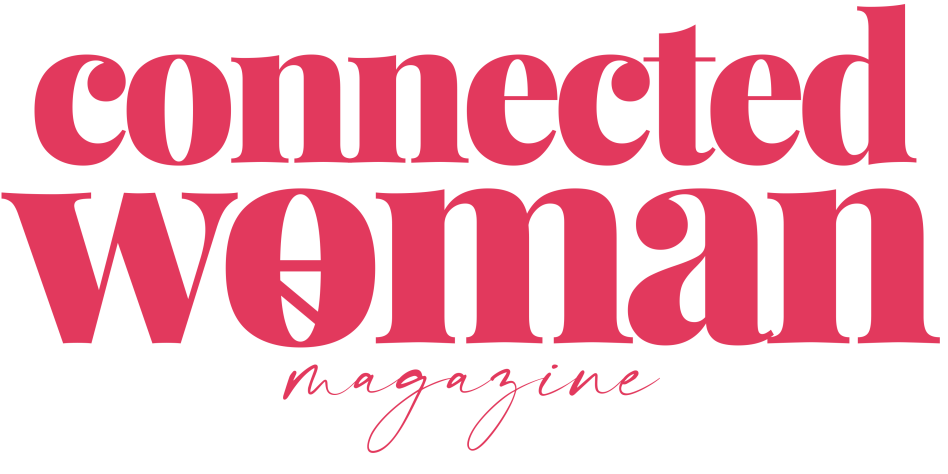Natasha Pennants health took a turn during what was supposed to be one of the happiest times a woman experiences-pregnancy and the arrival of a newborn child. Instead of letting her illness keep her down, she figured out healthy alternatives to keep fighting back.
Tell us about your diagnosis and the symptoms that lead to it? Peripartum (while pregnant) / Postpartum (after pregnancy) cardiomyopathy is a rare heart condition that happens to women either during their last trimester through up to 5 months after giving birth. The heart muscle itself weakens making the heart muscle grow in size (normally the left side) and lose function. This results in congestive heart failure. Everyone’s heart has an Ejection Fraction. This is the percentage of blood the heart pumps through your body each time it beats. The normal ejection fraction should be 55-60%.

In 2000, I was 22 years old and pregnant with my first and only child. I developed symptoms about 3 months before I was diagnosed. It started with the swelling of my feet. I was working in Corporate America at the time and found that I had to wear flip-flops to work. My co-workers who had been through pregnancy told me that it didn’t look right and that I needed to call my Ob-Gyn. So I followed their advice, called the doctor and explained to him that my feet were excessively swollen. He told me that comes with the territory of being pregnant. So I told him, you don’t understand and hung up the phone. I went to his office immediately after work, went directly into his office and around his desk and showed him my feet. He wasted no time putting me on maternity leave and bed rest. Over the next month, my blood pressure started and continued to rise. I was told that if it didn’t go down by week 4 on bed rest I would need to be admitted to the hospital. They kept me there for 3 days and my pressure went down. I would have come home but my son was 4 weeks early.
Neither my doctor nor myself figured there was anything wrong, but the swelling in my feet never went back to normal. I was still wearing flip-flops even after my son was born and transported to Philadelphia due to health difficulties of his own. Each night, I started to be able to not sleep all the way through the night. I took a walk to the bank near my house and was really out of breath on my way back home. I figured that I was just out of shape because I was very active prior to the pregnancy. I went to my primary care physician and was diagnosed with Bronchial Spasms and given an inhaler to use. At the end of that appointment, she asked my why she could see my heart beating through my shirt. The only answer I had was, “I don’t know.”
My son was still in Philadelphia when I woke up at 4 in the morning one day and couldn’t breathe. His father told me I was hyperventilating and needed to go back to sleep. But I had finally had enough of not getting sleep, so I drove myself to the emergency room where I was finally diagnosed with a heart condition. I wasn’t told that it was postpartum cardiomyopathy just that I was in congestive heart failure. My heart’s ejection fraction was at 15%.
You mention being told you would need a heart transplant after recent stress trigger and being completely against it. Can you share where your reaction stemmed from and what your next steps were to avoid having to do so? When I fell ill last year, I already knew exactly what the cause was. I had been through a horrible breakup with someone who I thought I was going to spend the rest of my life with. Mentally, I had gotten over it, but I was stricken with Broken Heart Syndrome, which is basically another way of developing a cardiomyopathy. So I had a cardiomyopathy on top of an existing cardiomyopathy so to speak. I had seen many people in support groups I belong to on Facebook get transplants and a year or two later we were saying rest in peace. There is so much that has to be done with organ transplants and to be honest, I’m not that great at taking my medications at the same exact time every day. To even be a candidate you have to be strict with yourself. I am strict, but my memory is compromised due to the lack of oxygen when I’m not well. Not to mention, I am a firm believer that the body can heal itself.
The first thing that I did, was not eat the hospital food. Why? Because hospital food is processed “food”. The fruits and vegetables are not fresh. I felt, how is it I’m here to get better but the food quality is poor. I couldn’t have salt, yet they allowed me to have diet soda which I don’t drink. When I came after a week stay in the hospital and a lifesaving medication that was being administered through a PICC Line, I made sure that all my fruits and vegetables in the house was fresh or frozen AND organic. I didn’t eat anything canned. I made sure any meat purchased, beef or chicken (I don’t eat pork), was free roaming, organic and grass-fed. I drank my veggies in smoothies, as much as I could fit in the blender. I only used healthy oils. I took my medication as close to the same time daily as I possibly could. On top of that, I found one of the best Integrative Medical Cardiologists that told me which supplements I should be taking to help my heart function better.
What kept you from taking these steps back when you were diagnosed with initially congestive heart failure? Looking back, if I had known better I believe I would have done better. But at the time I was diagnosed I was not a big whole foods eater as I was only 22 and really was never enforced to eat healthy while I was growing up. Not that my family are very unhealthy because my family is Jamaican and most meals were cooked at home. But I wasn’t forced to eat what I did not like. The only vegetable I liked were cucumbers. It should have been common sense for me to eat better then. I started eating vegetables because I didn’t want my son to not want to eat them. So I forced myself to eat them so he would have healthy eating habits once he was around 2. I started to eat more vegetables when I was 24 and did the Atkins diet. After a while, when I really got tired of not being able to keep up with my son, I started to look for even healthier alternatives. With new age internet sites like YouTube, I really saw what changes needed to be made when videos showcasing the truth about our foods, fast foods and GMOs were accessible. I watched so many documentaries and decided that I need to eat so much healthier. So now, I’m actually on a journey to eating “electric foods”.
It seems that lack of knowledge on your physicians’ part also played a role in your misdiagnosis as well. From your knowledge are there tests that women should/could ask for that could aid in early diagnosis? Yes, there are two major tests that can be done to see if the illness is present. You can ask for an echocardiogram which is basically an ultrasound of the heart. It can determine any abnormality in the heart and its function. There are is also the brain natriuretic peptide (BNP) test. It checks to see if you have an overflow of the BNP that your heart produces. A BNP of 0-99 is normal. I’ve had a BNP of over 1000 in the past.
How did the diagnosis in general affect other areas of your life? After initial diagnosis, I wasn’t allowed to walk up and down steps more than once per day. I wasn’t allowed to lift more than 5 pounds, but that was impossible with a more than 6 pound at birth weight baby. There really wasn’t a change in my activity once I got a little better. I still went to the gym. I still went on walks. I still danced at the dance school I grew up in. But, my son was very active and there were many activities I couldn’t do with him like run with him or go to amusement parks and get on rides with him. I think it affected him more than it did me because I never got better and had to get my tubes tied and he always wanted a brother or a sister.
Tell us how many women may be misdiagnosed and what they should look for? Out of all the women I have spoken to in my support groups, very few have been properly diagnosed on first encounter. The majority of us have been misdiagnosed because the symptoms appear to be pregnancy related and normal to most physicians. We are told that it is in our minds and that we just need to rest and take it easy.
Not every person has the same symptoms. But the more common symptoms would be:
- Shortness of breath when you lay flat or exert yourself
- Feeling tired
- Heart racing or beating extremely hard
- Swelling in ankles and/or feet
How are you doing now and what do you do daily to maintain/improve? I am in a much better space today not just physically but mentally. When you are at a place where you don’t know what will happen next, it takes a toll on your thoughts. Even though I managed to get through with a lot of positive thinking, there were times that being by myself was scary. But as my physical self gets better, my mind is put more and more at ease.
I make sure to exercise daily. I’m able to walk a little over 3 miles a day. You have to get that cardio in, not too hard, but enough for the heart to get its exercise. I continue to eat healthy. I’ve cut out the red meat and may eat chicken or fish occasionally. I make sure that most of my food intake is vegetation and at least 50% of it is raw. I like to take time to enjoy the simple things in life. Laughter helps me so much. It keeps away any dark thoughts that may try to sneak into my mind.
Have you been tested in the same capacity since last year? According to your doctors/tests, where are you in terms of your condition medically (and realistically) compared to when the heart transplant was suggested to you? Based on your self-healing beliefs, have you been able to completely eliminate the previously prescribed medications? One this about my particular case is that I have been told by many doctors when I’ve had congestive heart failure that I look much better in person than I do on paper. That being said, physically I’ve only ever felt out of breath with most episodes. But once I get a little better the only thing that plagues me is less energy. In the past year, my energy levels have improved drastically.
I make a trip to my cardiologist every 3 months to check and make sure my numbers are not going down. Last year my ejection fraction was at 10%. At this point in time I am at 40% and still getting better. The size of my heart was at 7.8 centimeters, which was really stretched and enlarged. A normal heart should be no bigger than 5.9cm. My last test in January showed it was 5.5cm.
At the moment, I am still on most of my medications. I was able to have the PICC Line removed which was a huge victory for me. I was told that my ejection fraction might go down a lot because it is a lifesaving medication, but it only went down 3% and has risen back up! So I continue to take the medications that help my heart as well as my supplements. When my heart gets higher than 40% it is uncharted territory for me because I have not had an ejection fraction that high since before I got pregnant.
What message do you want to give to women in regards to the importance of taking care of themselves? It is highly important that you learn to listen to signs that something may not be right in your health. Heart Disease is the #1 killer above all cancers put together in North America. Why is that? It’s because we, especially women, dismiss symptoms like chest pain, dizziness, shortness of breath, etc. so that we can get our long laundry list of everlasting job duties done between work and home. If we don’t it feels like those duties will pile up and swamp us. This leads to women putting themselves last. But when it comes to health we must think of ourselves like a passenger on an airplane. If there is a crisis, we must first put the oxygen mask on ourselves because if not, we run the risk of not even being able to help the passenger next to us. At least when you put the mask on first, you are in a position to help others. The same goes for our health. If our bodies are compromised, it makes it extremely difficult to take care of anyone else.
For more information on Natasha and her endeavors visit www.natashapennant.com.
Take the lead on your healthcare. If one doctor can’t help, find another. Take care of yourself. Share your thoughts in the comments below.
